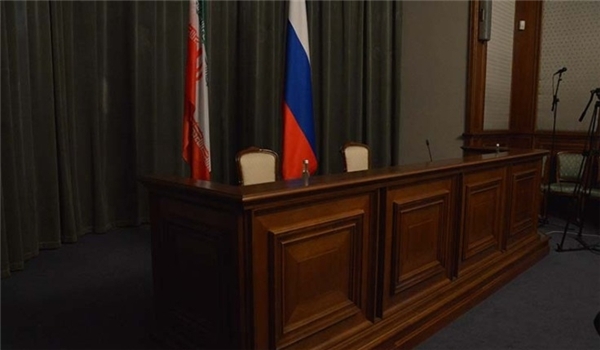 Iran sent new signals on Tuesday that it was seeking to subvert the Western sanctions on its contentious nuclear energy program, adding uncertainties in advance of another round of negotiations next week in New York before the United Nations General Assembly.
Iran sent new signals on Tuesday that it was seeking to subvert the Western sanctions on its contentious nuclear energy program, adding uncertainties in advance of another round of negotiations next week in New York before the United Nations General Assembly.
The Iranians said they had been engaged in talks with Russia, a member of the group of big powers negotiating with Tehran, about economic cooperation in energy, which could undercut the sanctions. South Africa, a former Iranian oil customer that has honored the sanctions in deference to Western pressure, said that, after talks with an Iranian delegation, it hoped to resume imports in three months.
The atmosphere contrasts starkly with President Hassan Rouhani’s first visit to the United Nations last September for the General Assembly’s annual convergence of world leaders. The Iranian president spoke optimistically of a new era and prospects for a nuclear deal — capped by a groundbreaking telephone conversation with President Obama.
Since then, a temporary agreement reached in November eased some of the sanctions against Iran in exchange for a freeze on most of its nuclear activities. Negotiators extended the talks, creating a new deadline for a permanent agreement by this November, but there has been little sign of substantive progress.
Iran and the so-called P5-plus-1 group — permanent Security Council members Britain, China, France, Russia and the United States, plus Germany — are scheduled to reconvene in New York on Sept. 18, a few days before the General Assembly.
Both Mr. Rouhani and Ayatollah Ali Khamenei, Iran’s supreme leader, have been asserting with increased frequency that should there be no nuclear agreement, the sanctions would fracture.
The Iranians may just be posturing as part of a negotiation strategy to exert pressure on the Obama administration, which has made a nuclear agreement an important foreign policy objective.
But some experts who have followed the negotiations say Mr. Khamenei, who deeply mistrusts the United States and has the final word on any deal, now believes Iran can withstand the economic consequences of any new sanctions should diplomacy fail.
Some analysts have speculated that Iran’s conservative hard-liners, who oppose any rapprochement with the United States, have convinced Mr. Khamenei that improved economic ties with Russia — which also faces sanctions by the West over the Ukraine crisis — have given Iran new leverage.
Last month, Russia and Iran signed a memorandum in which Russia would buy Iranian crude oil and Iran would purchase energy equipment, machinery and food, a deal that American officials have warned would be a sanctions violation.
On Tuesday, Ali Majedi, Iran’s deputy oil minister, was quoted by state news media as reiterating that Iran and Russia would “develop cooperation” in energy and petrochemicals industries.
“What Russia did was give Iranian hard-liners an argument to Khamenei, that in a no-deal scenario, Iran has an economic lifeline from Russia, which is why we don’t need to have this deal stuffed down our throats,” Cliff Kupchan, the Middle East director at the Eurasia Group, a political risk consultancy in Washington, said in a telephone interview.
In an emailed report to clients on Thursday, Mr. Kupchan and Greg Priddy, the group’s global oil director, downgraded the possibility of a nuclear accord to 40 percent from 60 percent.
By The New York Times
The Iran Project is not responsible for the content of quoted articles.

 QR code
QR code